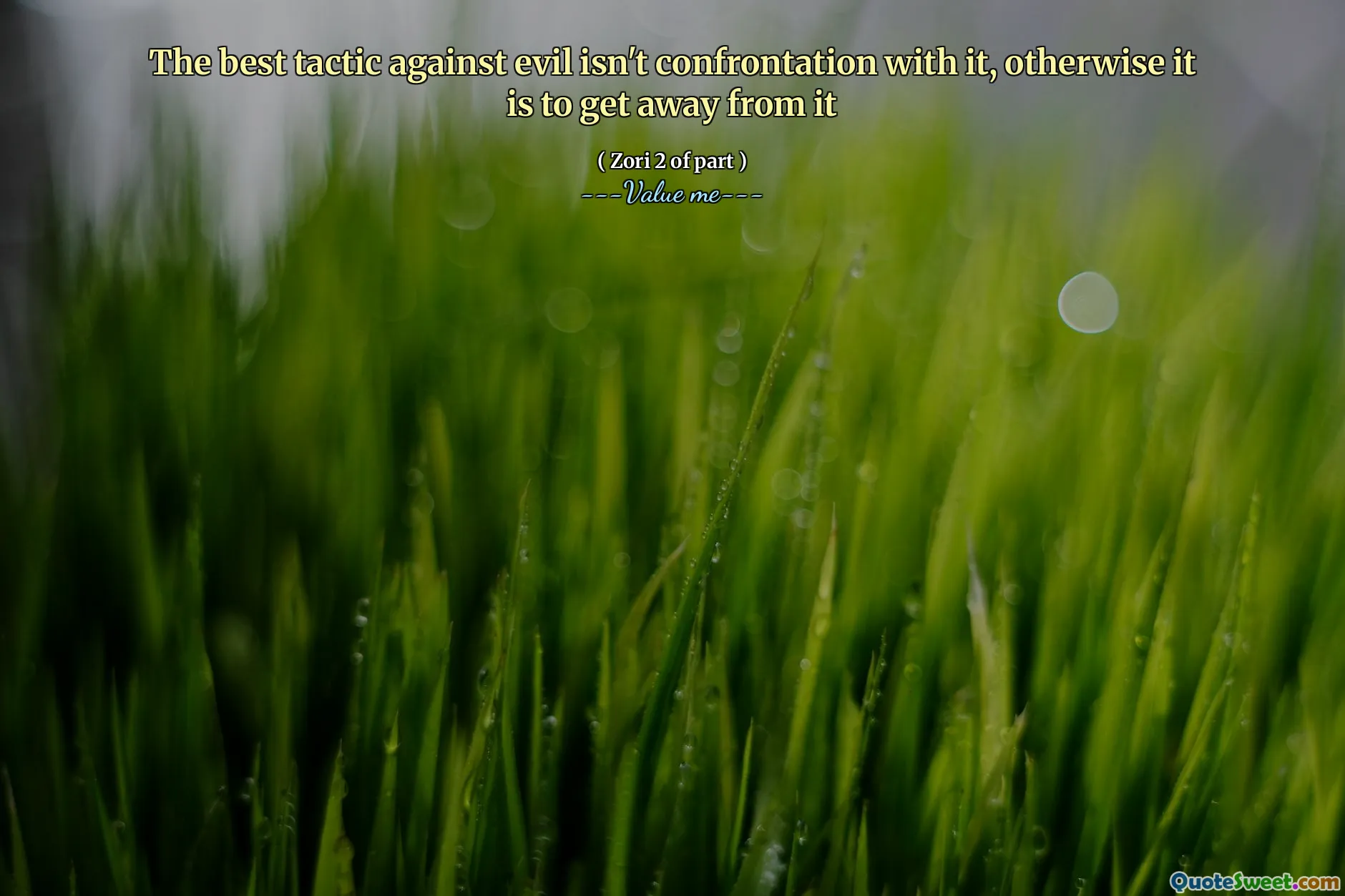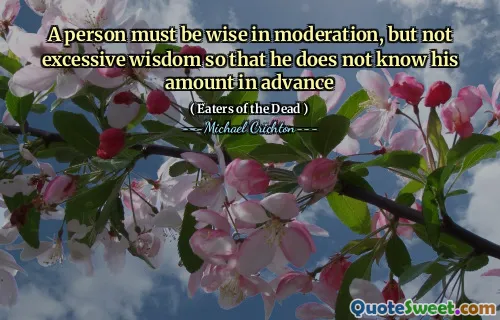
The best tactic against evil isn't confrontation with it, otherwise it is to get away from it
The quote underscores a profound strategic approach to dealing with malevolence or harmful entities. Often, the instinct when faced with evil or destructive forces is to stand one's ground and confront directly. However, this quotation suggests that the most effective tactic might be to distance oneself from such negativity. This approach resonates deeply in personal, social, and even political contexts. When dealing with toxic relationships, harmful environments, or oppressive regimes, direct confrontation can sometimes escalate conflict or bring unnecessary suffering. Choosing to retreat, escape, or withdraw can serve as a form of self-preservation, allowing individuals to preserve their integrity and peace of mind.
Moreover, this perspective embraces the idea that not all battles are worth fighting in the pursuit of moral or ethical righteousness. Sometimes, disengaging from evil or negativity deprives it of the attention or validation it seeks, thus diminishing its power. It’s akin to the principle that ‘you become what you focus on,’ implying that investing energy into avoiding or removing oneself from negativity is more beneficial than attempting to combat it head-on.
This concept also encourages strategic patience and wisdom. It recognizes that, at times, confronting evil might lead to confrontation, harm, or chaos, whereas avoiding it may foster serenity or safety. In personal development, it advocates for emotional intelligence — knowing when to stand firm and when to let go.
Ultimately, the quote highlights a nuanced understanding of conflict, emphasizing that peace and safety sometimes come not from fighting evil but from sidestepping it altogether. It challenges us to think about the priorities in our responses to adversity, urging discernment and strategic retreat.
Book: ( Zori 2 of part ) - Author: ---Value me---






